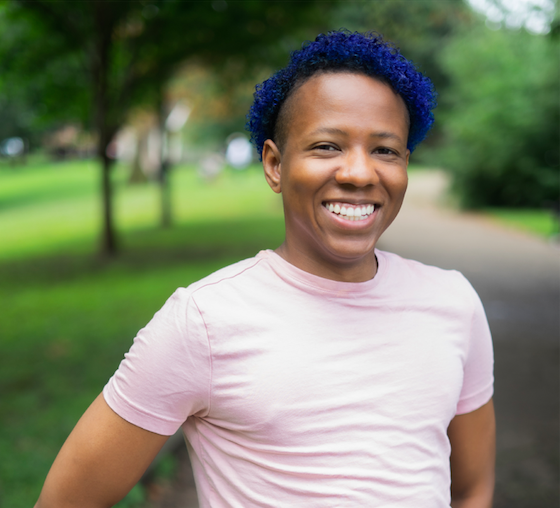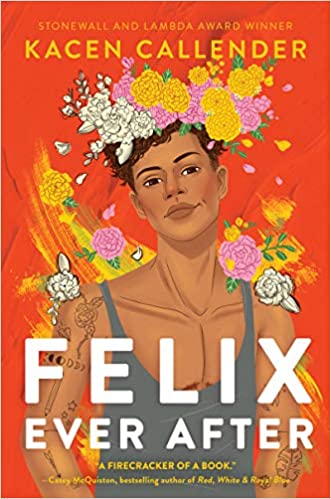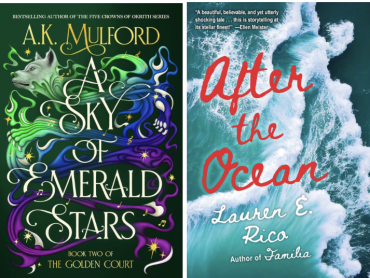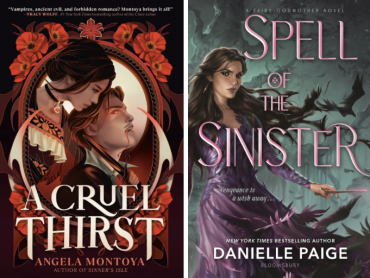Kacen Callender is a bestselling and award-winning author. They have written novels for middle school readers, young adult readers, and adults. Kacen Callender born and raised in St. Thomas of the US Virgin Islands. Some of Kacen Callender’s novels include This Is Kind of an Epic Love Story and Felix Ever After. Check out YEM’s interview with Kacen Callender below!
Young Entertainment Mag: What led you to become a writer? Who have been your literary influences?
Kacen Callender: I’ve always been a writer. From the time I was ten and writing fanfiction for some of my favorite Toonami anime shows. It was through fanfiction that a reviewer once told me I should consider writing original stories, too. Which was the very beginning of the journey to becoming an author. I like to write a bit of everything, so literary influences range from authors like Benjamin Alire Sáenz to Jamaica Kincaid, to Octavia Butler, to Renée Watson, Alyssa Cole… I could probably go on for a while.
YEM: How has identifying as trans and queer shaped your storytelling?
Kacen: It’s shaped my storytelling in the way existence has shaped my storytelling, haha. It’s a part of who I am. And I’ll write about any and all experiences that have shaped who I am, and lessons I need to be able to grow as a person. Sometimes this can interact with my identity. For example, I struggled with self-love as a Black, queer, and trans person in a world that generally hates Black, queer, and trans people… My identity lets me see the world through a lens that’s specific to me. So I write about what I see, and how I feel and what I think about what I see.
YEM: Your book, Felix Ever After, features a queer transgender teen as the protagonist. What does that kind of representation mean to someone who identifies as trans?
Kacen: That rep means the world as someone who, up until this year, had never seen a Black, queer, trans masculine teen like Felix, period. (There’s recently been more growth in representation for different shows, though, letting me see more of this identity!) Seeing that representation reflected back, whether it’s my own story or not, is like having the validation that—yes, I exist, and others like me exist, and we deserve to see and be seen, too.

Photo Credit: Ashley Cain
YEM: Felix Ever After is also a coming-of-age love story. How is the story the same as any other YA love story and in what ways is it different?
Kacen: I think it’s similar to other YA romances in the sense that characters might be feeling these feelings for the first time, so those emotions are even more intense and meaningful. And the stakes are even higher — especially as many characters, Felix included, are likely to stumble along the way and make mistakes they need to learn and grow from.
And, to be honest, I don’t think Felix is very different from other love stories. Though this is one of the first times we are seeing a character with Felix’s identities in a novel, Felix is a human first and foremost. And there are so elements to love stories that are universal, even if the circumstances creating those fears different: the fear that we’re not worthy of love, wanting to feel validated, questions about platonic vs. romantic love… The stories and plots might be the same, but these are feelings and experiences that connect us all.
YEM: Felix Ever After tackles themes of identity and labels. How are labels important to the characters in your book? How are they not?
Kacen: I love presenting both sides to this argument, which I do when characters Ezra and Leah have a conversation about labels. On the one hand, I have to wonder if we would even have labels if we weren’t in a world that oppressed us. If there was no oppression against LGBTQIA+ people, would we care about labels, or would we simply exist? Do labels sometimes get in the way of potential feelings, because we’ve convinced ourselves we are one thing but not the other?
On the other hand, we aren’t in a bubble free from oppression. And many people have fought and suffered for the right to have the label they have chosen for themselves. Labels can also help to connect people and foster community. Labels can be a source of pride. For me, the most important point of this conversation is that both sides of the discussion are perfectly valid and any person’s choice in the matter needs to be respected.
YEM: How exciting is it to have Felix Ever After be adapted for a TV series?
Kacen: !!!!!!!!!!!!!!!
A million exclamation marks!!!! I still feel like it’s a dream because having a book adapted for a TV series been a dream for so long, to the point that I’d even convinced myself that it was never going to happen. And it was a dream that was better to move on from.
So, to answer the question: it’s so very, very, very exciting.
YEM: Another of your book’s released this year was King and the Dragonflies, a middle school novel. As you’ve written adult stories, YA stories, and middle school stories, is there a difference in how you tell them?
Kacen: Yes—the main difference for me are the different levels of hopefulness. My middle grade characters and voice are generally still earnest; they walk into the story with a sense of purpose and determination. Like they have no doubt that they will succeed in their goal. My YA characters and voice tend to be a little more jaded. They’ve lived a few more years and have generally seen more hurts and pains that make them less convinced that they’ll succeed. My adult novels, so far, have not been hopeful at all in comparison. For the adult books I also tend to have more questions that I’m still wrestling with as an adult, rather than lessons that I’m trying to show in the MG and YA (though there can be questions I’m asking there as well).
YEM: What was the inspiration behind King and the Dragonflies?
Kacen: There were a couple of inspirations here as well. I was having dinner with my editor when she mentioned she’d never seen a middle grade novel featuring a Black, queer boy before. And I realized I hadn’t either. That was the first spark of writing the novel. The second was the image of the main character, King, surrounded by dragonflies, and knowing that he believed one of them was his brother.
YEM: King and the Dragonflies explores many sensitive and nuanced topics such as race, sexuality, and homophobia. Why is it important that these themes have representation even at a middle school level?
Kacen: Gen-Z readers are really on top of topics that I hadn’t even been aware of until college. I wasn’t discussing intersectionality until I was maybe 18, 19 years old. But when I visited schools, young readers would already be discussing identity and more. I think that they’re hungry and ready to see stories that reflect their generation, the conversations they’re having with their peers and teachers and guardians. Black, queer students need to see themselves and be validated that they matter enough to be seen; allies of all identities need to see people accurately reflected in their community. And, perhaps with the help of reading, develop even more empathy for people who have identities that aren’t their own.
“My identity lets me see the world through a lens that’s specific to me”
YEM: What other YA or middle school novels featuring trans and queer stories can you recommend to our readers?
Kacen: So many! These are authors I love: George M. Johnson, Akwaeke Emezi, Leah Johnson, Claire Kann, Rebecca Barrow, Kayla Ancrum… There are so many. I’d also like to recommend LGBTQReads.com, an archive of queer and trans novels (along with other great stuff like interviews with authors).





